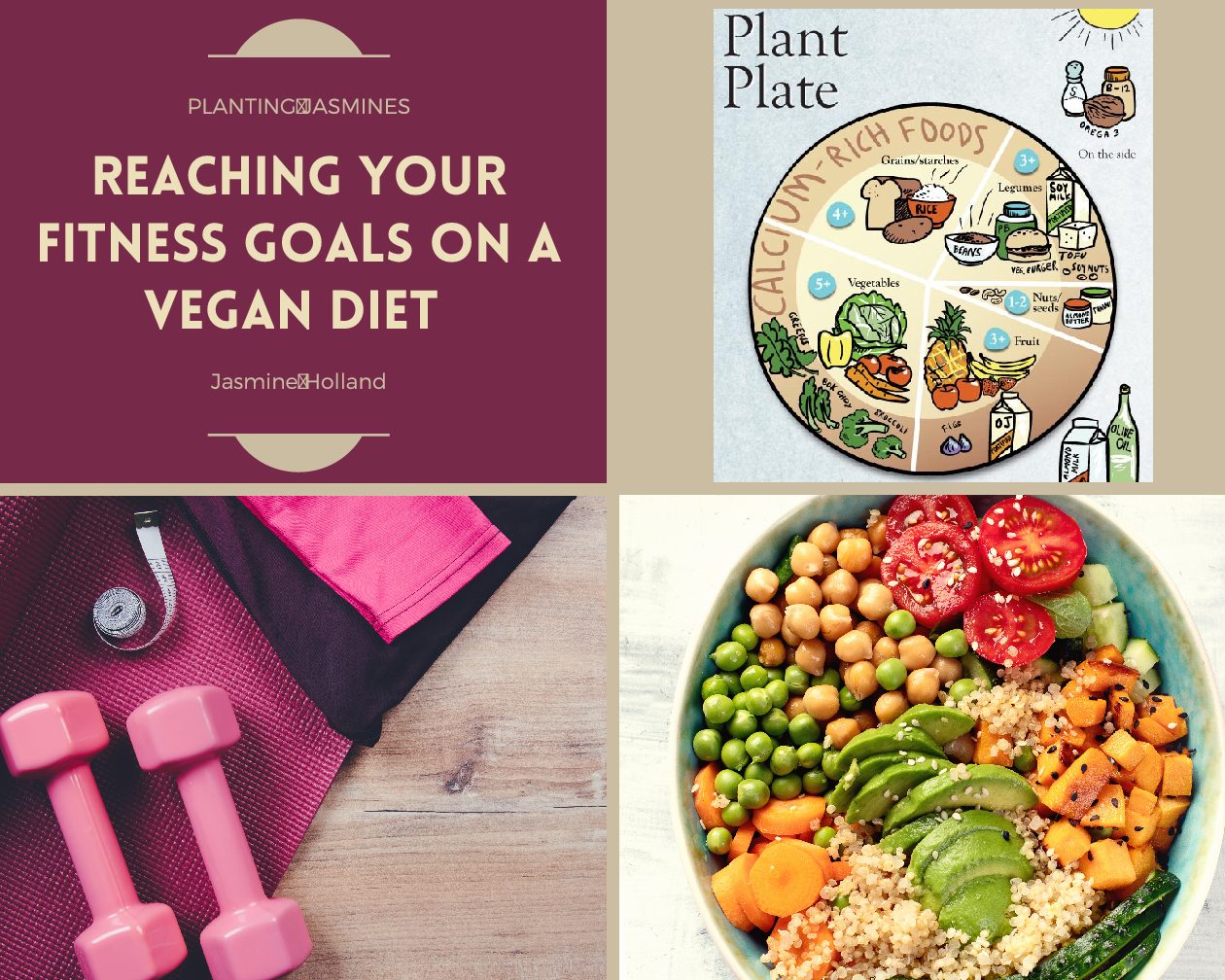
Reaching Your Fitness Goals While Vegan
Just like the standard American diet (SAD), without proper balance and nutrition, one’s fitness goals can lack. Over the years of losing weight, gaining weight, and supporting muscle on a vegan diet, I have learned that it is more than possible to reach your macronutrient goals. No matter if you thrive on a ketogenic diet, a high protein, low carbohydrate diet or anything else, these are all possible ways of eating that can be maintained on a vegan diet. Doing so all comes down to convenience and what works best for you. I choose the protein powder and branch chain amino acid route to supplement my exercise routine and recovery. This does not mean you need these things, you can get the perfect amount of what you need just from a balanced diet consisting of whole foods!
Having low energy or unwanted weight loss on a vegan diet can often mean that your levels in iron and B12 are low as well as many other essential nutrients. You could simply not be eating enough.
When transitioning to veganism, you may experience a drop in energy just because your body is using more energy to break down food or you may not be getting enough nutrients in. Here is some information on low energy that could help you keep a clear mind if you do experience these things.
Taking supplements like a multivitamin and B12 vitamin or spray are great ways to combat this BUT eating foods high in these nutrients in conjunction with these vitamins will help you tremendously. Getting seeds in your diets such as chia seeds, flax seeds, and hemp seeds will help get omega-3 fatty acids, fiber, and protein. I would recommend buying these in bulk because a tablespoon of each can be added to just about anything like smoothies, baked goods, oatmeal, pudding, etc. These are always good to combat low energy and low iron, as well as eating cruciferous vegetables like broccoli, cabbage, cauliflower, spinach, kale, arugula, bok choy, and collard greens.
Feelings of low energy could also mean that you may be eating too much at once, causing the digestion system to be overworked and overloaded. Not meaning that you are eating too much entirely, but, when transitioning to veganism, eating more fibrous fruits and veggies in a higher capacity than your body was used to means more work for your body. Overtime (took about 1 month for me) it will adjust. You may experience being more gassy than usual, but that’s normal. These shifts in energy levels are expected and only mean that you’re body is adjusting to a new way of eating.
On the opposing side, low energy could also mean that you aren’t eating enough. A vegan diet is a lot higher in volume per calorie than a standard American diet. For example, I can eat two whole mangoes for breakfast, a bag of spinach with rice and tofu for lunch, and two bean tacos for dinner. If there isn’t any added healthy fats to these dishes, it could possibly be true that this day of eating only consisted of 1000 calories. I may feel full after, but that’s because of fiber and volume. I encourage adding a serving size of healthy fats like nuts, nut butter, seeds (sesame seeds, pepitas), avocados, grapeseed and avocado oil, tahini, and things like that to meals to increase calories per meal without feeling like you are overfeeding yourself in any way.
The keys to reaching your fitness goals on a vegan diet are the same as if you were on a regular diet with meat and dairy. The keys are to listen to your body and how it reacts to certain foods, whole, nutritious foods in abundance are always great when focusing on your fitness goals. A vegan can get as much protein in their diet as meat eaters as long as they don’t over consume high carb foods. Protein can be from beans, rice, seeds, nuts, vegan meat alternatives, protein powders, and so much more. Veganism is so sustainable when it comes to any aspects of your lifestyle.





